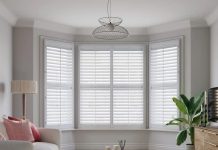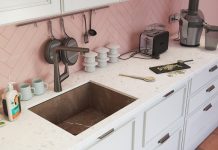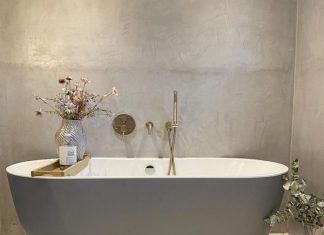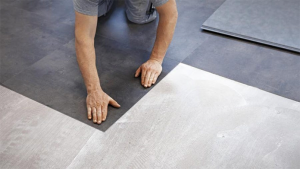
Vinyl is a flooring choice that has a number of benefits. Over the years, the material has improved a lot in terms of quality and thanks to new technologies, it comes in a wide range of designs to suit the most popular design styles.
Modern vinyl flooring composes of several layers of different materials pressed together to form a lightly durable, practical and affordable floor covering. Often thought of as sheet flooring, which is arguably the most popular type, other types of vinyl flooring are also available, including tiles and planks.
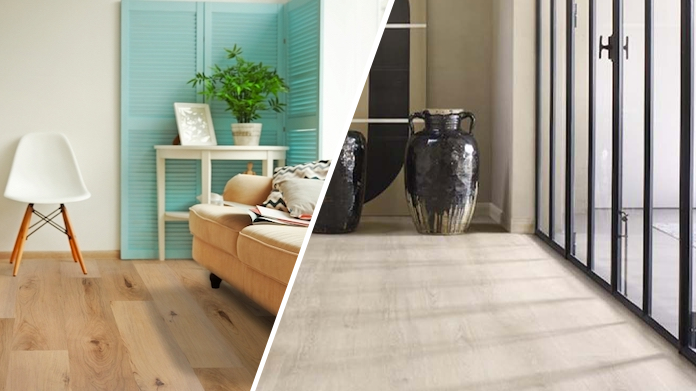
Vinyl tile flooring is becoming increasingly popular among homeowners due to its realistic and beautiful look. Build with tiles that form a thick and floating floor, this flooring choice can not only make your home more enjoyable to live in but also improve its value. Here are the most remarkable benefits of vinyl tiles that you need to know about.
Water-Resistance
One of the greatest qualities about this flooring is that it’s 100% moisture-resistant. This factor alone makes it ideal for use in kitchens, bathrooms and basements. There are some vinyl tile options that are even waterproof. As well as being water-resistant, vinyl tiles are also a highly stain-resistant option. Printed vinyl tiles, in particular, have a clear wear layer that acts as a surface barrier that helps protect against spills and stains. Keep in mind that not all vinyl floors come with this protection, which may make them more susceptible to stains. So, make sure you read the fine print on the flooring before making your decision.
Affordability

As for cost, vinyl tile flooring is an affordable option, especially compared to traditional tile, stone or hardwood. In most cases, it never exceeds moderate cost levels. The price for vinyl floor tiles can be as low as $24 per square metre and can climb to up to $65 per square metre for premium tiles. As you can see, even the highest vinyl flooring sits below the average cost of natural flooring materials.
Durability
Vynil is a highly durable material. When it comes to how long does vinyl flooring last it can be anywhere between 10 and 20 years if well-taken care of. However, depending on what type of vinyl flooring you choose, you can expect different levels of durability. For example, solid vinyl and composite vinyl tiles are homogenous with colours permeating every layer. This feature makes them more resistant to damage from scratches. Fibreglass-reinforced vinyl tiles are extremely durable. The fact that this vinyl flooring is composed of individual pieces that can easily be replaced if damaged, makes it even more durable.
Comfort
After carpet, vinyl flooring is one of the softest flooring options available. It is a lot softer beneath the feet than options like wood or ceramic tile. Due to their softer nature, vinyl floors have a little more flexibility and give, which makes them easier to stand on for long periods of time. Furthermore, many models of vinyl flooring, specially viny tile flooring, come with a padded felt on the back that when installed, translates to a softer floor with more give.
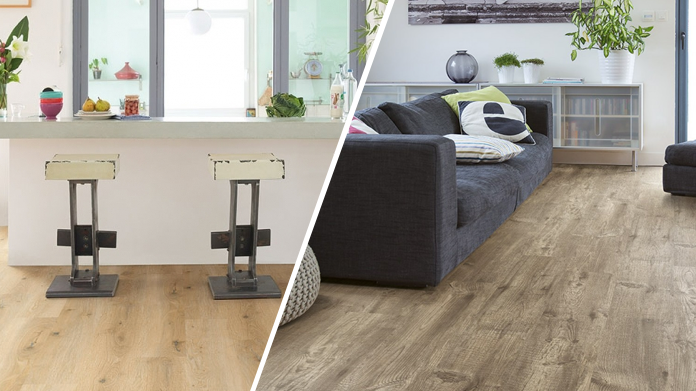
While the top will look like hardwood or stone and have that strong feel, standing on vinyl for long periods of time is much easier than standing on real wood or stone. Another comfort pro of this flooring is that it doesn’t get cold in the winter, so you won’t have to worry about wearing sleepers to avoid the chill that colder weather that cold weather inevitably brings to hard surfaces. Objects like glasses and mugs are also less likely to break when dropped on vinyl.
Easy Maintenance
Looking for the most low-maintenance flooring option out there? Vinyl flooring meets this criterion as well, requiring only light routine cleaning. Generally, all you have to do is sweep grit and dirt and use a Swiffer to remove stains. While there are approved vinyl floor cleaners available, they should be used only on certain occasions.
Easy to Install
Another great benefit of this floor is that it can be installed directly on almost any subfloor, making the installation process quick and relatively easy. And it’s also easy relatively easy to install. Depending on your DIY skills, you may be able to get away without having to hire an installation professional or contractor.
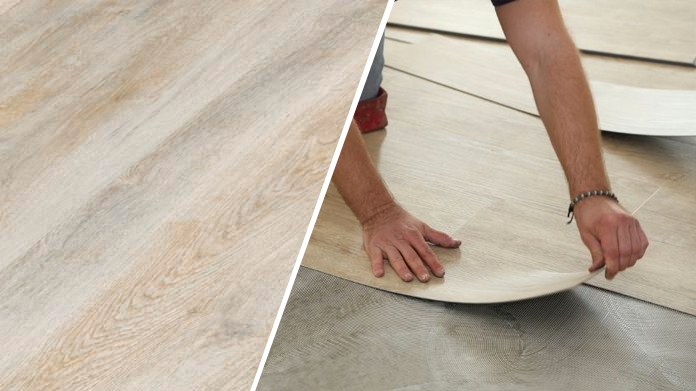
While some vinyl floors can be installed even on imperfect subfloors, that is not the case with vinyl tile floors which requires an extra level surface. So, before installing vinyl tiles, make sure you always inspect the subfloor to make sure it’s in good shape. Any flaws and imperfections will show through as pumps and intentions on your floor.
Like with other kinds of flooring, there are some measures you can take to protect vinyl tiles from damage. One of them is placing a mat at the entrance to keep off debris and pebbles that are likely to damage your surface. You’ll also want to use pads at the feet of heavy items like rustic wood furniture placed on the surface. It’s not recommended to drag items on the floor because they will damage the surface and affect its texture.

